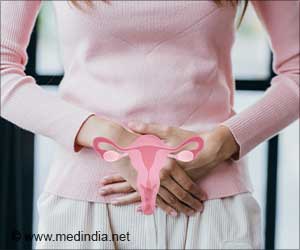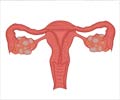September is PCOS Awareness Month, highlighting the importance of understanding and managing this common condition with the latest evidence-based insights.
- PCOS involves irregular periods, high male hormones, and polycystic ovaries
- Lifestyle changes like diet and exercise are vital for managing symptoms
- Cochrane reviews provide evidence-based insights into treatments like Metformin, acupuncture, and reproductive interventions
Polycystic Ovary Syndrome Awareness Month
Go to source).
PCOS affects up to 10% of women of reproductive age worldwide, yet many remain undiagnosed. #PCOSAwareness #WomensHealth #medindia’
Understanding PCOS: A Common but Complex Condition
PCOS is a hormonal disorder with three defining characteristics: irregular menstrual cycles, elevated levels of male hormones, and polycystic ovaries visible on ultrasound. These features often lead to challenges such as reduced fertility, excessive hair growth (hirsutism), and acne. Beyond reproductive issues, women with PCOS also face an increased risk of metabolic conditions like diabetes and cardiovascular disease due to insulin resistance and abnormal cholesterol levels.Being overweight often exacerbates these symptoms, making weight management a crucial part of the treatment plan for many women. The psychological toll is also significant, as the condition can lead to increased anxiety, depression, and a lower quality of life.
Theme of PCOS Awareness Month
The theme for Polycystic Ovary Syndrome (PCOS) Awareness Month in 2024 is "Voices of Strength, Agents of Change". This theme highlights the importance of collective action to improve PCOS care. During this dedicated month, organizations and advocates work tirelessly to spread awareness about PCOS, highlighting the importance of early diagnosis and effective treatment options. Events and campaigns aim to educate both healthcare providers and the public about the signs and symptoms of PCOS, fostering a supportive community for those affected. This collective effort encourages women to seek help, share their experiences, and challenge the stigma surrounding the condition.Latest Insights on PCOS Treatment
Cochrane’s Gynaecology and Fertility Group (CGF) is at the forefront of evaluating the latest interventions for managing PCOS. Their work is comprehensive, analyzing both published and unpublished randomized trials to provide evidence-based conclusions. With 19 systematic reviews focused on PCOS, CGF offers valuable insights into treatments ranging from medication to lifestyle changes.Among the most researched treatments is Metformin, commonly used to manage insulin resistance in women with PCOS. Several Cochrane reviews have compared Metformin with other treatments, such as the oral contraceptive pill, and its effectiveness for improving ovulation and reducing symptoms like hirsutism and acne.
Role of Lifestyle Changes in Managing PCOS
Lifestyle interventions, including diet and exercise, play a crucial role in managing PCOS. CGF’s research supports the notion that losing even a small percentage of body weight can help restore regular menstrual cycles and improve fertility in women with PCOS. Regular exercise and a healthy diet can also mitigate insulin resistance, reducing the risk of developing diabetes and other metabolic conditions.Cochrane has also explored the benefits of alternative therapies, such as acupuncture and Chinese herbal medicine, in managing PCOS symptoms. While the results vary, these options offer promising avenues for women seeking holistic approaches to their health.
Surgical and Assisted Reproductive Options
For women struggling with infertility due to PCOS, surgical and assisted reproductive interventions are often explored. Laparoscopic ovarian drilling is a surgical technique aimed at inducing ovulation, while gonadotrophin therapy is another commonly used method for stimulating ovulation. Cochrane reviews have assessed the effectiveness and safety of these interventions, providing valuable guidance for healthcare providers and patients alike.Mental Health and PCOS: An Overlooked Aspect
The emotional and mental health challenges associated with PCOS are often overlooked. The condition’s physical symptoms, combined with the stress of infertility and metabolic concerns, can significantly impact mental well-being. Cochrane’s research underscores the importance of addressing mental health issues like anxiety and depression in conjunction with physical treatment plans.There is no one-size-fits-all solution for managing PCOS. Cochrane’s systematic reviews emphasize a comprehensive approach, combining medication, lifestyle changes, and mental health support to improve the quality of life for women with PCOS. With ongoing research and evidence-based treatments, there is hope for better management strategies that cater to the unique needs of each woman.
As we continue to learn more about PCOS during this awareness month, the spotlight remains on empowering women to take control of their health, seek timely treatment, and advocate for their well-being.
"Empowering women with knowledge is the first step towards better health."
Reference:
- Polycystic Ovary Syndrome Awareness Month - (https://www.cochrane.org/news/polycystic-ovary-syndrome-awareness-month)
Source-Medindia













